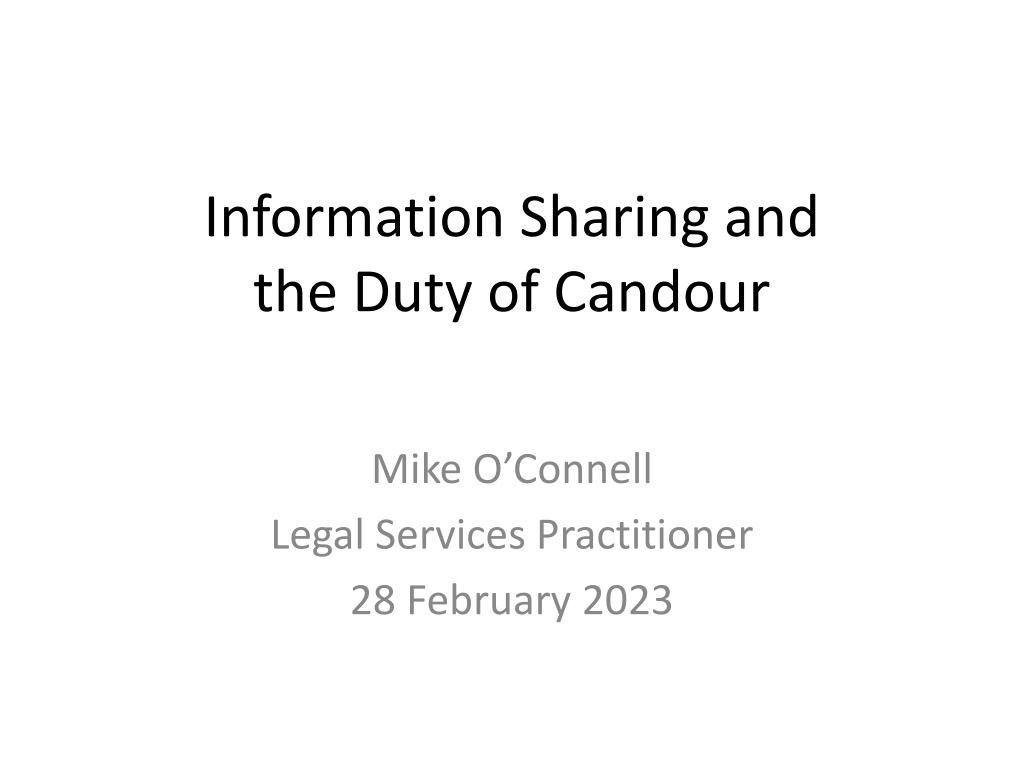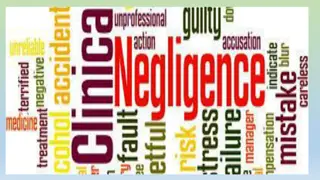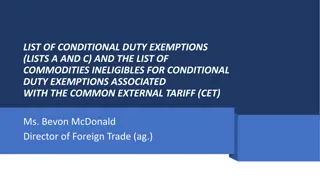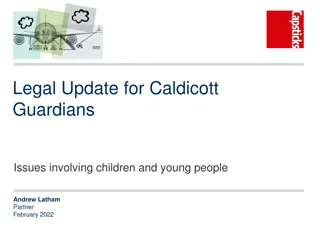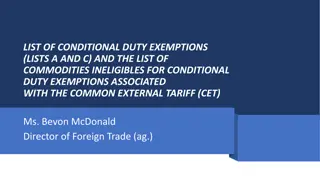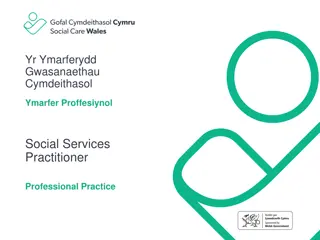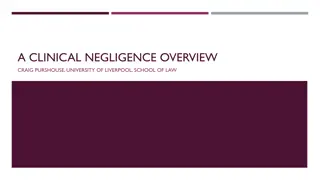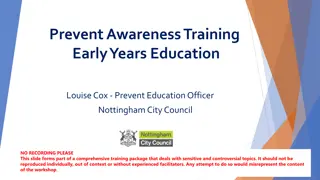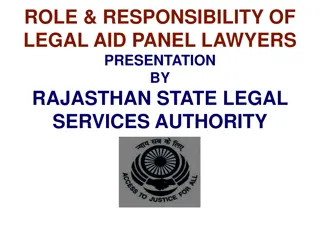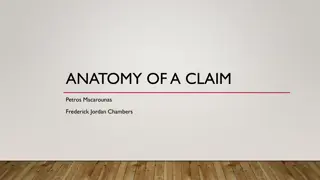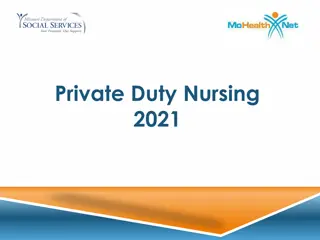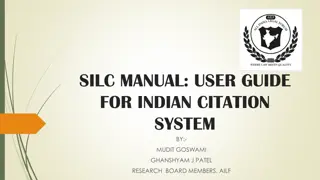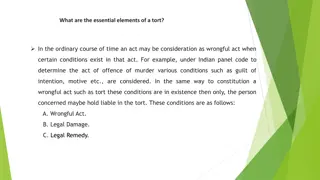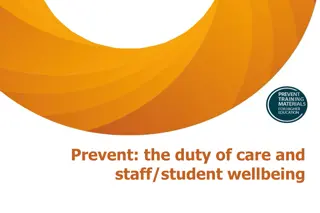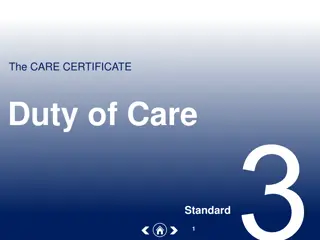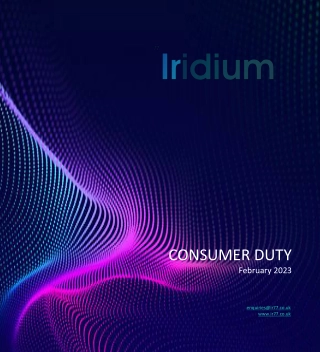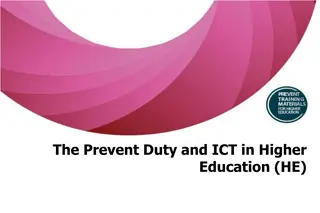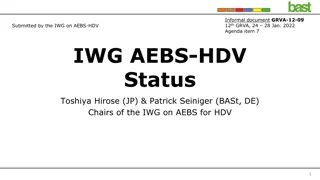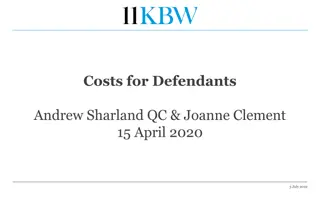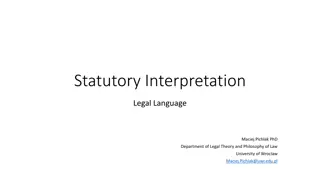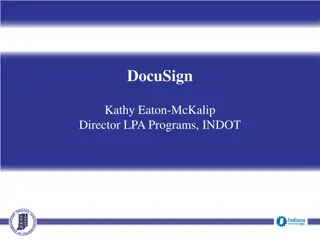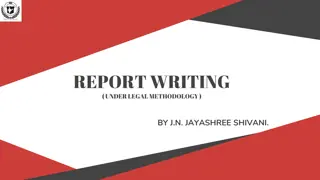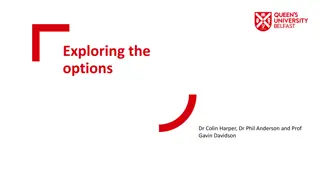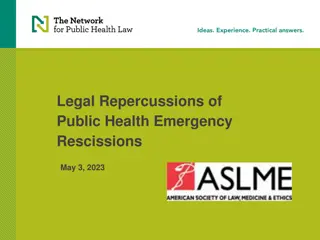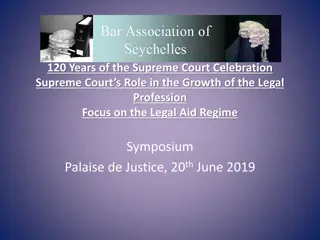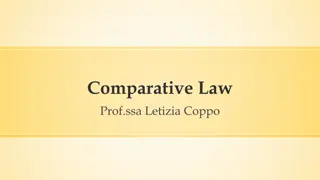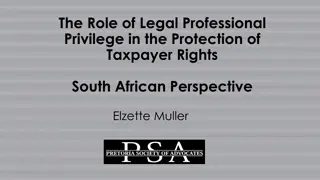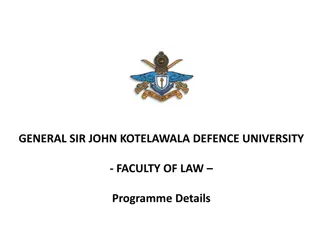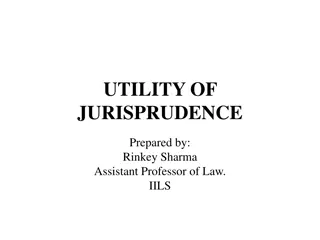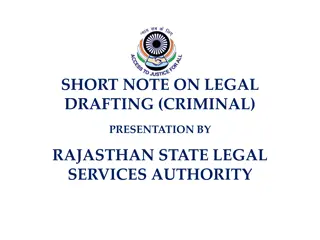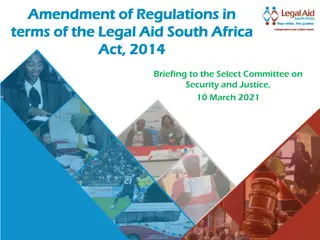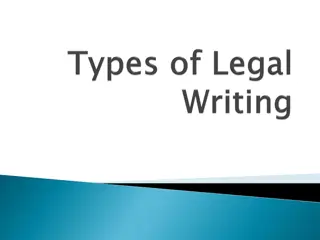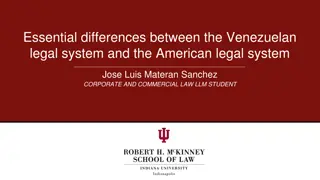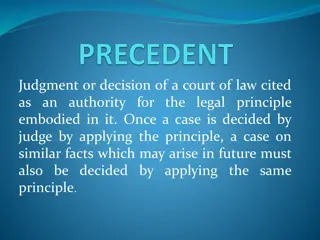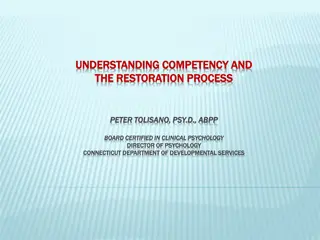Understanding the Duty of Candour in Legal Services
Explore the legal principles behind the Duty of Candour, including when disclosures should be made, training staff to disclose unanticipated events in patient care, liaising with patients and families, and applying open principles in practice. Learn about the statutory Duty of Candour, key recommendations, and the importance of acting in an open and transparent manner in healthcare settings.
Download Presentation

Please find below an Image/Link to download the presentation.
The content on the website is provided AS IS for your information and personal use only. It may not be sold, licensed, or shared on other websites without obtaining consent from the author. Download presentation by click this link. If you encounter any issues during the download, it is possible that the publisher has removed the file from their server.
E N D
Presentation Transcript
Information Sharing and the Duty of Candour Mike O Connell Legal Services Practitioner 28 February 2023
Topics for today the legal principles behind the Duty of Candour: when should disclosures be made? information sharing and the Duty of Candour training and supporting staff in disclosing unanticipated events in patient care liaising with patients and families applying being open principles examples in practice
The Disclaimer Not a lawyer Head of Legal Services 24 years NHS Acute Trust, maternity, 3 hospital sites, community services Well known to Trust senior clinicians, Caldicott Guardian, Complaints Manager, clinical governance managers, local coroners, NHS Resolution Case Managers
Duty of Candour Key recommendation from Francis report Contractual duty NHS Standard Contract SC35 Statutory duty Health and Social Care Act 2008 (Regulated Activities) Regulations 2014, regulation 20
What is candour? The volunteering of all relevant information to persons who have or may have been harmed by the provision of services, whether or not information has been requested and whether or not a complaint or a report of that provision has been made Robert Francis QC
Statutory Duty of Candour A legal duty placed on CQC registered providers (NHS since 27 November 2014, all providers from April 2015) On the organisation not the individual One of the Fundamental Standards to be policed and enforced by the CQC as with other regulatory standards (e.g. care and treatment, safeguarding, governance)
Statutory Duty of Candour General duty must act in an open and transparent way in relation to care and treatment provided to service users Specific duty applies for notifiable safety incidents Notifiable safety incident (NSI) - an unintended or unexpected incident that could result in or appears to have resulted in : - death (i.e. caused by incident not natural progression of disease - severe harm, moderate harm or prolonged psychological harm
When does it apply? General duty applies at all times Specific duty only applies when threshold of harm or potential harm is met - a notifiable safety incident (NSI) The key is to ensure you are recognising those incidents where the specific duty applies and then taking action to comply with it If it is a near miss with no harm then specific duty will not apply.
Complying with specific duty (1) Notify the relevant person that the incident has occurred Provide reasonable support to the relevant person Report the incident Conduct a full investigation into the incident
Complying with specific duty (2) The notification must: be given in person provide a true account of the facts (as known at the time) advise what further enquiries will be made include an apology be documented in a written record be followed up in writing (covering all the above) plus the results of any further enquiries.
Reg 20: Duty of candour Guidance In making a decision about who is most appropriate to provide the notification and/or apology, the provider should consider seniority, relationship to the person using the service, and experience and expertise in the type of notifiable incident that has occurred.
Reg 20: Duty of candour Guidance Other than the situations outlined (e.g. over 16s lacking mental capacity, under 16s lacking mental capacity etc), information should only be disclosed to family members or carers where the person using the service has given their express or implied consent.
Reg 20: Duty of candour Guidance Providers should make all reasonable efforts to ensure that staff operating at all levels within the organisation operate within a culture of openness and transparency, understand their individual responsibilities in relation to the duty of candour, and are supported to be open and honest with patients and apologise when things go wrong.
The duty of candour: guidance for providers (CQC, 2021) The duty of candour is a general duty to be open and transparent with people receiving care from you Statutory and professional duties of candour Saying sorry is not admitting fault In many cases it is the lack of timely apology that pushes people to take legal action. To fulfil the duty of candour, you must apologise for the harm caused, regardless of fault, as well as being open and transparent about what has happened.
Saying Sorry (NHS Resolution) Saying sorry is: - always the right thing to do - not an admission of liability - acknowledges that something could have gone better - the first step to learning from what happened and preventing it recurring. We have never, and will never, refuse cover on a claim because an apology has been given. Helen Vernon, Chief Executive, NHS Resolution
Being Open NPSA Safer Practice Notice 10 Being open when patients are harmed 15 September 2005 Principle of acknowledgement Principle of truthfulness, timeliness and clarity of communication Principle of apology Principle of recognising patient and carer expectations Principle of professional support Principle of risk management and systems improvement Principle of multidisciplinary responsibility Principle of clinical governance Principle of confidentiality Principle of continuity of care
Principle of confidentiality Policies and procedures for being open should give full consideration of, and respect for, the patient s and/or their carer s and staff privacy and confidentiality. Details of a patient safety incident should at all times be considered confidential. In addition, it is good practice to inform the patient and/or their carers about who will be involved in the investigation before it takes place, and give them the opportunity to raise any objections.
Management of Serious Incidents NHS England Serious Incident Framework: Supporting learning to prevent recurrence (27 March 2015) December 2018: NHS Improvement launched a public consultation exercise on a new patient safety strategy for the NHS (One of the) Key factors contributing to poor investigation: Defensive cultures and lack of trust
NHSI: Defensive cultures and lack of trust Too frequently patients, families and carers describe a poor experience where they are not informed or involved and do not have an opportunity to have their questions heard and answered. Too often, NHS organisations do not share and engage with people openly. Whether this culture is deliberate or the inadvertent consequence of poor systems or fear about sharing information, it results in people losing trust in NHS organisations. As suspicion and mistrust develop, people seek answers by other means, often requesting an independent investigation or pursuing litigation.
The NHS Patient Safety Strategy: Safer culture, safer systems, safer patients July 2019 improving understanding of safety by drawing intelligence from multiple sources of patient safety information (Insight) equipping patients, staff and partners with the skills and opportunities to improve patient safety throughout the whole system (Involvement) designing and supporting programmes that deliver effective and sustainable change in the most important areas (Improvement). Serious Incident Framework Patient Safety Incident Response Framework (PSIRF)
PSIRF Sets out the NHS s approach to developing and maintaining effective systems and processes for responding to patient safety incidents for the purpose of learning and improving patient safety. Replaces the Serious Incident Framework (2015) and removes the Serious Incidents classification and threshold for it. Embeds patient safety response within a wider system of improvement. Prompts a significant cultural shift towards systematic patient safety management.
Key aims: Compassionate engagement and involvement of those affected by patient safety incidents Application of a range of system-based approaches to learning from patient safety incidents Considered and proportionate responses to patient safety incidents Supportive oversight focused on strengthening response system functioning and improvement
Standards Policy, planning and oversight Competence and capacity Engagement and involvement of those affected by patient safety incidents Proportionate responses.
Patient safety learning responses under PSIRF Regulatory & Legal - H&S Type Patient safety Legal - Criminal Complaint Regulatory Coronial Legal - Civil Remit NHS & PHSO Professional regulators Claims lawyers NHS Coroner Police CQC Honest answers Protect (not punish) Culpability (Who) Culprit (Who) Aim Contributory factors (How) Legal Enforcement determination Cause and circumstances of death Improvement Health & Safety Goal Resolution & learning Fitness to practice Improvement reduced risk Compensatio n Justice
Information sharing when an incident has occurred Coroner s inquests Police investigations Memorandum of Understanding: Investigating patient safety incidents involving unexpected death or serious untoward harm (DH, Feb 2006) to promote effective working relationships between the National Health Service, Association of Chief Police Officers and Health & Safety Executive.
Memorandum of Understanding Still requires justification for any necessary breach of patient confidentiality Need for consistency in approaches by Police re Trust incident investigations Independent review of gross negligence manslaughter and culpable homicide (commissioned by GMC ) June 2019
Case study 1 67 yo female. Admitted via ED. Noted allergic to Penicillin (YAS + ED records). : chest infection exacerbation of asthma. To MAU. Seen by FY1 on call. Requires IV antibiotics. No indication on medical clerking notes or prescription sheet of any allergies. FY1 prescribed + RN gave Amoxycillin. 5 minutes later patient collapsed CPR HDU ICU at tertiary centre. Dies 5 days later. Coroner informed.
Case study 1 - process Incident Report SI RCA (within 6 weeks). Meeting with family - RCA shared. Inquest (8 months after death). Only lasted 2 hours. Misadventure. No Neglect rider. Family no questions, as RCA shared, so no surprises. No Regulation 28 announcement. Coroner satisfied that Trust s reaction to incident was swift and appropriate and a R28 announcement would serve no purpose. Claim (2 years after death). Letter of Claim NHSR. Liability admitted promptly. Settled within a year.
Case study 2 43 yo male. To ED by Police. Picked up previous day for reasons of personal safety, mute, not eating, walked yesterday, not today. Seen by FY1. No letter from Police doctor. Attempts to obtain collateral history; Police surgeon not available. GP: h/o depression, cannabis use, alcohol problems. FY1 attempts to examine patient, who pushes doctor s arm away. Assessed by Psychiatric FY2: pulse 143, blood results = ?infection, recommends review by medics. Bed booked on MAU (5+ hours after arrival). Admitted to MAU (after 13 hours in ED), Medics noted right sided weakness. CT = acute subarachnoid haemorrhage tertiary centre. Died 10 days later.
Case study 2 - process Coroner informed. Incident Report (MAU SpR: Delay in accurate assessment delayed diagnosis and appropriate management, and delayed neurosurgical referral. Patient may have suffered harm because of this) SI RCA. IPCC investigation (of Police + ED). Over 18 months, interviewed circa 37 staff. Independent medical expert witness delays may have contributed to death 3 ED doctors + 2 Nurses in charge of shifts under caution at Police Station, potential Manslaughter charge.
Case study 2 - process To CPS(after 18 months) no criminal proceedings (almost a year later). GMC referral (3 doctors) + NMC (2 nurses). Inquest held 4 years after death; Lasted 6 weeks + 2 days. Town Hall. 15 advocates (family, FMEs, Police Officers, Chief Constable, Doctors, Trust). 61 witnesses (inc 5 statements read out). Narrative conclusion (6 pages typed A4). Medical cause of death: 1a Spontaneous Subarachnoid Haemorrhage 1b Ruptured Cerebral Artery Aneurysm.
And remember. You re not alone! Caldicott Guardian Information Governance team Data Protection Officer Clinical colleagues BMA, MPS, MDU etc Trust Legal Services Trust solicitors Safeguarding Children/Adults teams Quality & Safety team
Caldicott principles a reminder Justify the purpose(s) for using confidential information Use confidential information only when it is necessary Use the minimum necessary confidential information Access to confidential information should be on a strict need-to-know basis Everyone with access to confidential information should be aware of their responsibilities Comply with the law The duty to share information for individual care is as important as the duty to protect patient confidentiality Inform patients and service users about how their confidential information is used
What have we covered today? the legal principles behind the Duty of Candour: when should disclosures be made? information sharing and the Duty of Candour training and supporting staff in disclosing unanticipated events in patient care liaising with patients and families applying being open principles examples in practice
Further reading Duty of Candour http://www.cqc.org.uk/guidance- providers/regulations-enforcement/regulation- 20-duty-candour#guidance AvMA (Action against medical accidents) https://www.avma.org.uk/policy- campaigns/duty-of-candour/ NHS Resolution https://resolution.nhs.uk/resources/saying-sorry/ NHS Patient Safety Strategy https://www.england.nhs.uk/patient-safety/the- nhs-patient-safety-strategy/#implementation- updates
